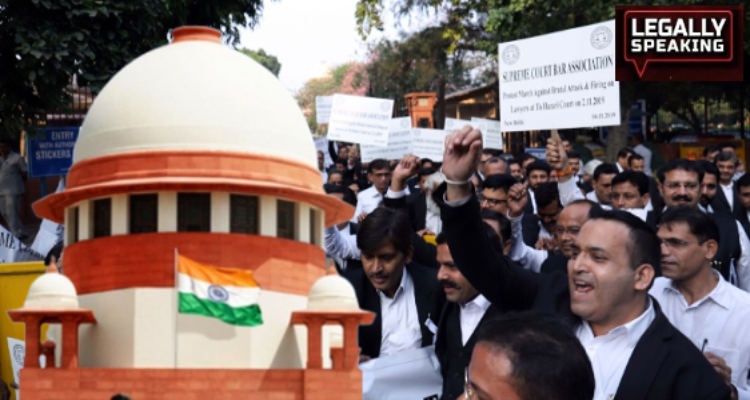
The Supreme Court on Wednesday said that it will examine the rules drafted by the Bar Council of India (BCI) to address issues related to strikes by lawyers.
A bench of justices Sudhanshu Dhulia and SVN Bhatti scheduled further hearings on the matter for February.
The BCI had submitted a draft rule to tackle concerns related to lawyer strikes. BCI Chairman Manan Kumar Mishra, a senior advocate, informed the court that the rules were open for examination, and any suggestions from the court would be accepted without conditions.
The court stated, “We will examine these rules. The rules therefore need to be examined in detail.”
Chairman Mishra also conveyed to the court that they had considered suggestions from the petitioner’s lawyer, Prashant Bhushan, while formulating the rules addressing issues related to lawyer strikes.
The court was hearing a contempt petition filed by the NGO Common Cause regarding lawyer strikes. The petitioner sought action against lawyers abstaining from work and urged the BCI to issue directives incorporating rules prohibiting strikes by advocates in the ‘Standards for Professional Conduct and Etiquette’ framed under Section 49(1)(c) of the Advocates Act, 1961.
During the hearing, Prashant Bhushan proposed that if a requisition for a meeting to consider a strike is received, committee members, a Bar Association, or Bar Council should refuse to call a meeting for that purpose. Additionally, if a strike call is given by any officeholder of the Bar Council or Bar Association, immediate disciplinary action should be initiated against them for professional misconduct by the concerned Bar Council.
BCI Chairman Mishra advocated for practicality, emphasizing that they can’t deny a lawyer the right to observe a strike in protest of certain incidents. Justice Dhulia recalled his early days in Allahabad High Court, stating that despite encountering a strike on his first day in Allahabad, nothing untoward happened.
Advocate Prashant Bhushan acknowledged that the situation has slightly improved due to the court’s intervention but argued that the problem won’t be resolved unless clear rules are established.
In the previous hearing, the Bar Council of India sought to present the draft rules for consideration, expressing readiness to frame the rules if the Court provided immediate input. The court directed the respondents to provide the petitioner’s counsel with draft copies for examination.




